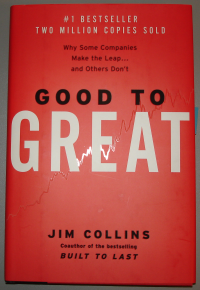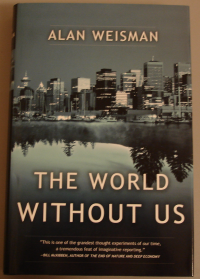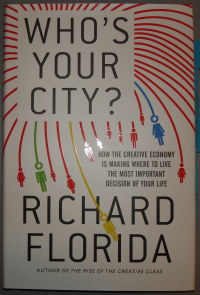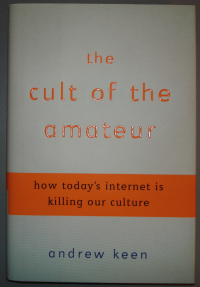Here are a few short reviews of some of the more interesting books I have read somewhat recently. Beyond the below I have also recently read Blink: The power of thinking without thinking and Here comes everybody. Both of these books are also worth reading. Hopefully I’ll get around to a couple quick reviews at some point.
Good to Great
 Author: Jim Collins
Author: Jim Collins
Good to Great is a famous business book which describes a huge amount of research which aimed to find out what makes a company attain and sustain exceptional results. The rigorous research that drives Good to Great makes it stand out. Given the high profile of this book the reader may well recognize certain ideas in their corporate lives. 4 out of 5.
Enduring great companies don’t exist merely to deliver returns to shareholders. Indeed, in a truly great company, profits and cash flow become like blood and water to a healthy body: They are absolutely essential for life, but they are not the very point of life.
Indeed, the real question is not, “Why greatness?” but “What work makes you feel so compelled to try to create greatness”? If you have to ask the question, “Why should we try to make it great? Isn’t success enough?” then you’re probably engaged in the wrong line of work.
The World Without Us
 Author: Alan Weisman
Author: Alan Weisman
Have you ever wondered what would happen if every human on Earth disappeared? How long would it take for our buildings to fall, our cities and every other trace of our civilization to disappear?
The World Without Us is a big thought experiment which attempts to answer exactly these questions. There is so much interesting stuff in this book. Facts such as it would only take a matter of days for New York to be irreparably damaged by flooding make this an interesting read.
I started this book expecting a lot of discussion around when the obvious signs of our civilization would be gone. While this is covered, the book spends even more time on larger environmental aspects that I had not considered. 4 out of 5.
Who’s Your City?
 Author: Richard Florida
Author: Richard Florida
This is a stunningly good book. It is based on a large body of research, contains lots of interesting anecdotes and notably explains why cities are growing in importance even in an age when telecommunications and the Internet should allow people to live and work where ever they like. Who’s Your City? will profoundly change the way you look at the world and your own location choices. 5 out of 5.
I need to read this book again.
The Cult of the Amateur
 Author: Andrew Keen
Author: Andrew Keen
I think it is important to challenge yourself with ideas that you may not agree with. In this spirit I grabbed a copy of The Cult of the Amateur. The sub-title of this book is “how today’s internet is killing our culture’. Basically this book laments the disintermediation or democratization that is so often associated with the Internet, usually with a positive connotation. A critical view of the effects of the Internet is not a bad thing but the author seems to be more upset with change than anything else. Long discussions of lost music stores and music becoming a loss leader for coffee attempt to show the bad side of the digital world. Similarly, the author calls out Craig’s list for destroying news papers because it is stealing revenue from their once profitable classifieds sections. To me, these changes are not ‘killing our culture’. They are the result of technological change and new, more efficient competition. This isn’t a bad thing. Though it may be painful for some participants.
There are also parts of this book which I think border on dishonesty. One example of this can be found on page 24 during a discussion of “remixing”:
Silicon Valley visionaries such as Stanford law professor and Creative Commons founder Lawrence Lessig and cyberpunk author William Gibson laud the appropriation of intellectual property.
I’ve read quite a bit of Lessig’s work. No where have I read anything that would indicate he ‘lauds the appropriation of intellectual property’.
Occasionally the author does make some interesting arguments so the book is still worth reading. If nothing else you will think slightly more critically about the societal change brought about by the Internet which is probably a good thing. 2.5 out of 5.
Regarding “The World Without Us”, I haven’t read it, but if all the humans suddenly disappeared I figure that nature would claim everything we had less than 100 years. Not destroy, but clearly and obviously own it.
In terms of actually erasing the human legacy from the planet, this would take much longer. Humans have built some absolutely titanic structures and settlements on the surface and it takes a long time to make concrete go away. It would take tens of thousands of years before a visitor to the empty Earth would never know that we existed.